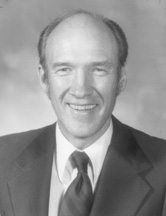


In our past readings and now current one with Robin Lakoff, the common theme of emotional persuasion is present. The quote form Lakoff’s book that I found to be quite interesting is, 
“Language is the transference of meaning from mind to mind.”(Lakoff 9)
This transference and interpretation of the language along with preconceived notions, beliefs and experiences always play a factor in our decision making processes. Lakoff discusses how to make the judging of human communication scientific and this appears to be a daunting task when considering all the obvious bias, viewpoints available to the study of discourse and the like. The extreme difference in findings when two observers view an issue or topic can be both fascinating and maddening at the same time. As I examine a few of the cases Lakoff details in
The Language War, my goal is to present the plausibility of various meanings depending upon who is analyzing the situation.
A simple example of the ways in which meaning can be construed by word choice, is the cat example on page 24 of The Language War. Politicians sometimes employ this technique when trying to recover from a poor choice of words or an ignorant statement. John Kerry just this past week made highly inflammatory remarks regarding soldiers in Iraq with the statement ,

“You know, education, if you make the most of it, if you study hard and you do your homework, and you make an effort to be smart, uh, you, you can do well. If you don't, you get stuck in Iraq”.
Kerry as you can image was blasted for his insensitivity to those in the war and issued an apology of sorts which could be deemed a
un-apology by Lakoff. Kerry responded that his comment was a jokeand stated,
“regret that my words were misinterpreted to imply anything negative about those in uniform.”
This appears to be a backhanded comment once he uses the word “misinterpreted”, because how else would a television viewer or newspaper reader respond to the theory that, a person’s lack of education equals being stuck in Iraq. Kerry’s puzzling apology like statement again supports the claim by Lakoff that a true apology by the offender reveals weakness and allows for loss of power. But as a defender of Kerry could you propose Senator Kerry was just trying to take a jab at the Bush administration and had no intention of disgracing those in uniform? Possibly, but I’m sure Kerry’s advisors had a difficult time strategizing how to dig their possible 2008 Presidential candidate from a seemingly deepening hole.
As Lakoff has mentioned before she again prefaces her dive into “The Stories That Make the News” with the commentary,
“They are about language: who has the ability and the right to make meaning for everyone….Culture, after all is the construction of shared meaning.”(Lakoff 19)
meaning for everyone….Culture, after all is the construction of shared meaning.”(Lakoff 19)
This is certainly true but in regards to various sensational news stories in recent years, segments of the population have been divided by versions of their own reality.
Culture in a smaller sense can be applied to the political agendas of various parties, featured in the analysis of the Anita Hill and Clarence Thomas saga. The story begins with Clarence Thomas, the newly minted Supreme Court Justice and ally to the Republican party, being accused of sexually harassing Anita Hill a former co-worker. Those in the Republican Party were intent on discrediting Ms. Hill in order to main their desired influence in the Supreme Court. Key figureheads in the GOP such as senators Alan Simpson and Arlen Specter blasted Hill during the investigation. Simpson seemingly trying to intimidate Hill issued these comments,
various parties, featured in the analysis of the Anita Hill and Clarence Thomas saga. The story begins with Clarence Thomas, the newly minted Supreme Court Justice and ally to the Republican party, being accused of sexually harassing Anita Hill a former co-worker. Those in the Republican Party were intent on discrediting Ms. Hill in order to main their desired influence in the Supreme Court. Key figureheads in the GOP such as senators Alan Simpson and Arlen Specter blasted Hill during the investigation. Simpson seemingly trying to intimidate Hill issued these comments,
 “She will be injured and destroyed and belittled and hounded and harassed---real harassment, different than the sexual kind—just plain old Washington-variety harassment, which is pretty---pretty unique in itself.”(Lakoff 123).
“She will be injured and destroyed and belittled and hounded and harassed---real harassment, different than the sexual kind—just plain old Washington-variety harassment, which is pretty---pretty unique in itself.”(Lakoff 123).
Simpson’s aggressive stance and word choice almost says, “you may have been sexually harassed, but you will truly suffer now.”
In addition Senator Specter decides to inflict gender bias on Ms. Hill with his line of questioning,
“can you women shed any light on the possibility that Professor Hill  might have had an attachment or feeling which would have led her to think about these things?”(Lakoff 129).
might have had an attachment or feeling which would have led her to think about these things?”(Lakoff 129).
Specter’s word selection insinuates that Ms. Hill as a woman is too emotional and unable to determine what sexual harassment is. By attacking Ms. Hill, Spector and Simpson attempt to devalue her judgment in anyway possible. Those supporting Ms. Hill would find the senators’ behavior to be deplorable while the
GOP was willing to take a no holds barred attitude to ensure their Supreme Court Justice stayed power. Ultimately the Republican’s handling of the hearing proved successful as Clarence Thomas is still a Supreme Court Justice and his scandal is a distant memory.In the case of O.J. Simpson, Lakoff discusses how the trial and the eventually verdict broke many forms of tradition regarding the court system. Lakoff uses the term metanullification, which is
“the denial of the validity or applicability of the whole system.(Lakoff 211)"
211)"
With Simpson’s all-star lawyers finding enough reasonable doubt, O.J.,(see video) as we all  know was acquitted (“If it doesn’t fit you must acquit”). The ridiculous nature of the trial and the outlandish tactics used by the defense team prove that if a topic or scenario is presented a particular context, the truth can become lost or even secondary. The defense team took all logical and factually significant data and deemed it misleading or planted. Thus the jury decided to consider the opinion and persuasive techniques of F. Lee Bailey and Johnnie Cochran over scientific evidence. These tactics whether considered deplorable or a stroke of genius enabled Mr. Simpson to become a free man again. Lakoff states that the defense team was able to minimize the justice system’s process and ultimately reject all relevant science as inconsequential.
know was acquitted (“If it doesn’t fit you must acquit”). The ridiculous nature of the trial and the outlandish tactics used by the defense team prove that if a topic or scenario is presented a particular context, the truth can become lost or even secondary. The defense team took all logical and factually significant data and deemed it misleading or planted. Thus the jury decided to consider the opinion and persuasive techniques of F. Lee Bailey and Johnnie Cochran over scientific evidence. These tactics whether considered deplorable or a stroke of genius enabled Mr. Simpson to become a free man again. Lakoff states that the defense team was able to minimize the justice system’s process and ultimately reject all relevant science as inconsequential.
To conclude, The Language War by Robin Lakoff displays the talent to make sense of the sometimes foggy world of sensationalized news stories and political rhetoric. Although the stories of O.J. Simpson and Anita Hill/Clarence Thomas may differ, the masters of the word whether it is politicians or trial lawyers are front and center in determining the eventual outcomes. While Lakoff often pinpoints the disturbing nature of language manipulation, she certainly is not an apologist for deceptive practices. Lakoff often presents the ability to see through the debris and formulate a clear observation with dashes of humor along the way. During our readings this semester we have continued to realize the way in which concepts, trials, sentences and other forms of communication are constructed, and while the results can be troubling, we can never discount language and its ultimate power it has over our every action.
No comments:
Post a Comment